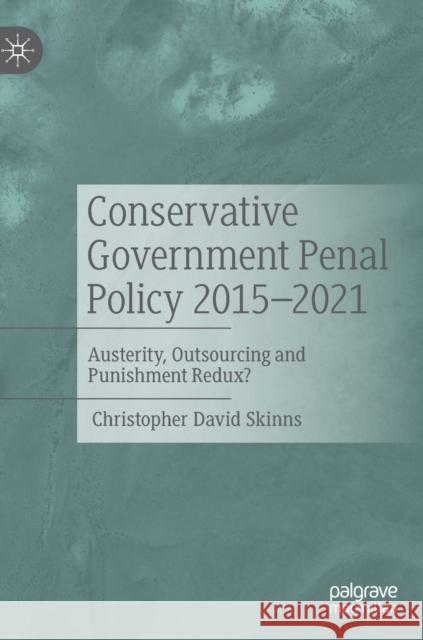Conservative Government Penal Policy 2015-2021: Austerity, Outsourcing and Punishment Redux? » książka
topmenu
Conservative Government Penal Policy 2015-2021: Austerity, Outsourcing and Punishment Redux?
ISBN-13: 9783031007965 / Angielski / Twarda / 2022 / 471 str.
Conservative Government Penal Policy 2015-2021: Austerity, Outsourcing and Punishment Redux?
ISBN-13: 9783031007965 / Angielski / Twarda / 2022 / 471 str.
cena 322,01
(netto: 306,68 VAT: 5%)
Najniższa cena z 30 dni: 308,41
(netto: 306,68 VAT: 5%)
Najniższa cena z 30 dni: 308,41
Termin realizacji zamówienia:
ok. 16-18 dni roboczych.
ok. 16-18 dni roboczych.
Darmowa dostawa!
Kategorie:
Kategorie BISAC:
Wydawca:
Springer International Publishing AG
Język:
Angielski
ISBN-13:
9783031007965
Rok wydania:
2022
Ilość stron:
471
Wymiary:
21.0 x 14.8
Oprawa:
Twarda
Dodatkowe informacje:
Wydanie ilustrowane











